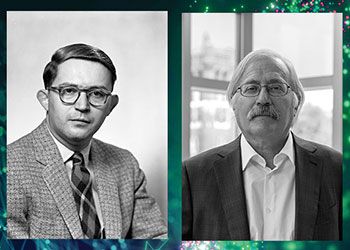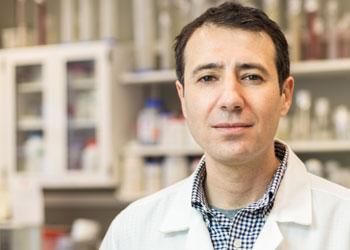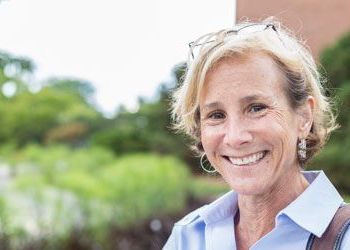Feeding the Future
Making plants more productive, thanks to philanthropy
Feeding the Future
Making plants more productive, thanks to philanthropy
January 19, 2023Putting food on humanity's table is top priority for Federica Brandizzi's research team at the MSU-DOE Plant Research Lab. The generosity of donors is helping them do it.
Brandizzi, an MSU Foundation Professor, is tackling serious questions about the earth's ability to feed a projected 9 billion people by 2050. In an effort to increase crop sizes, Brandizzi’s team has developed technology that softens the cell walls of plants, allowing them to grow bigger and produce more food within the same amount of land.
This type of research could help shape humanity's future, and it wouldn’t be happening without donors. It’s funded by grants from philanthropic organizations and by the MSU Research Foundation.
Such high-risk, high-reward projects don’t tend to receive massive government grants, explains Brandizzi. The government leans toward supporting “safer” projects with preexisting research already behind them. Federal grants fuel the fundamentals of plant research at MSU’s lab, but it’s up to others to fund the next generation of super-plants.
Federica compares this investment in innovative research to the investment donors make in students. You don't know for sure that a student will follow through on their education and use their talents in amazing ways. You invest in their potential and hope that your vote of confidence spurs them on to those happy outcomes. The risk is well worth the promise of the results.
Brandizzi knows this because someone once invested in her. At the start of her career, she was a struggling post-doctoral researcher who left the lab at 5 p.m. only to pull six-hour shifts at McDonald's to make ends meet. A philanthropic grant allowed her to quit McDonald's and support herself while launching her career. Without that grant, Brandizzi believes she would not be in this research role today, growing the next generation of crops to feed the future.
"I owe a lot to philanthropy. We can see how it is possible to make a big difference in somebody's life," she says.
Now, MSU's Innovation Center has helped Brandizzi get her plant technology in front of those who could license it for industry use. This would move it beyond research into actual application, so it can do what it's designed to do: make the world a better place.
Brandizzi is grateful for the donors who believe in her work and her students’ futures.
Recently, the Brandizzi lab sent seeds to space aboard NASA’s Aremis I mission to explore how humanity can sustain itself beyond Earth.




